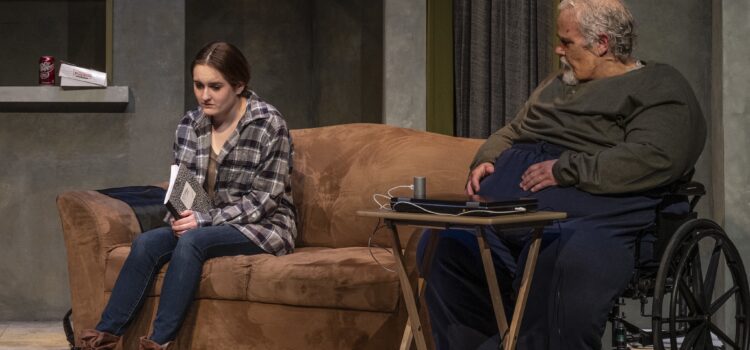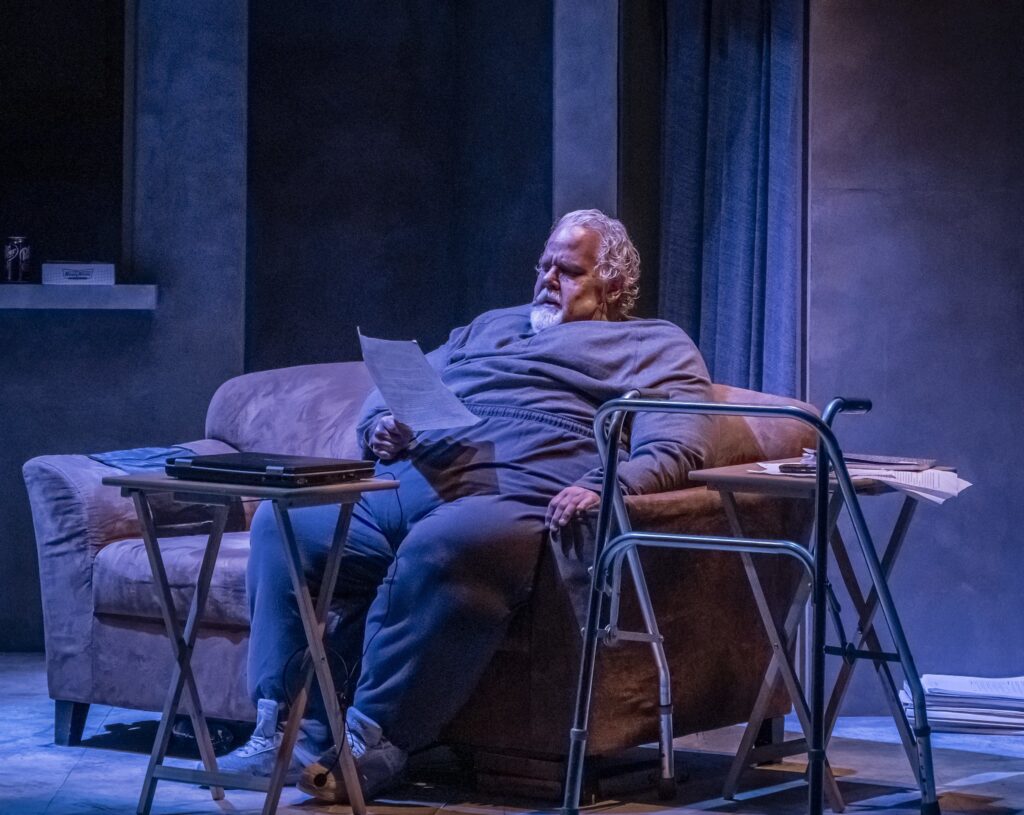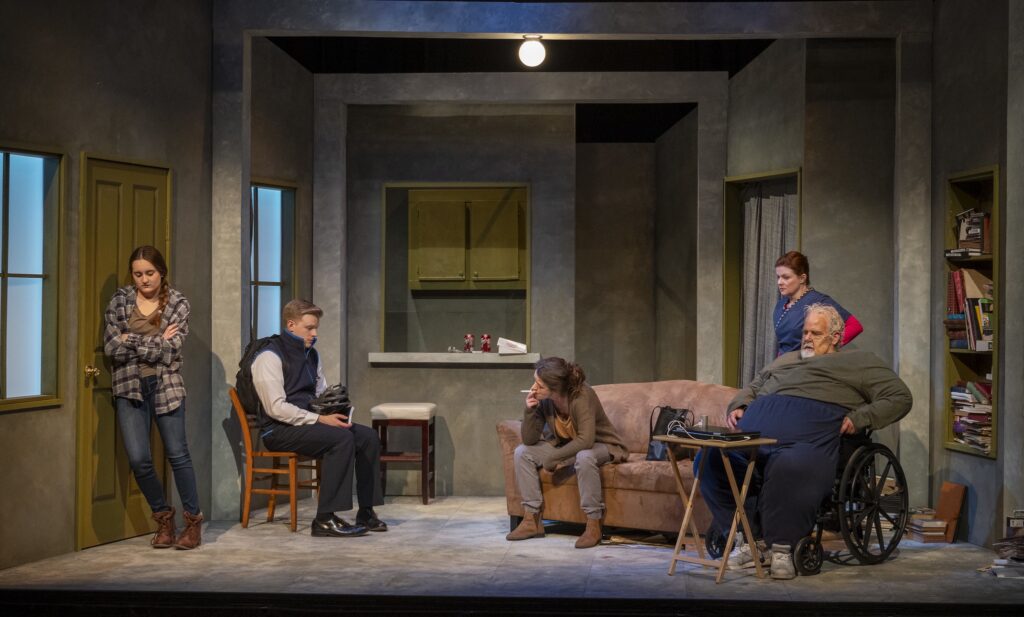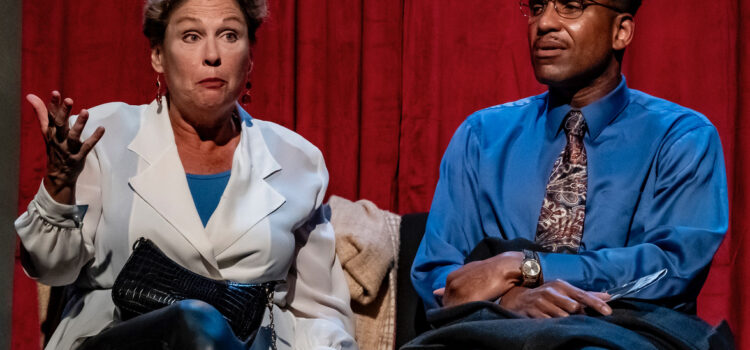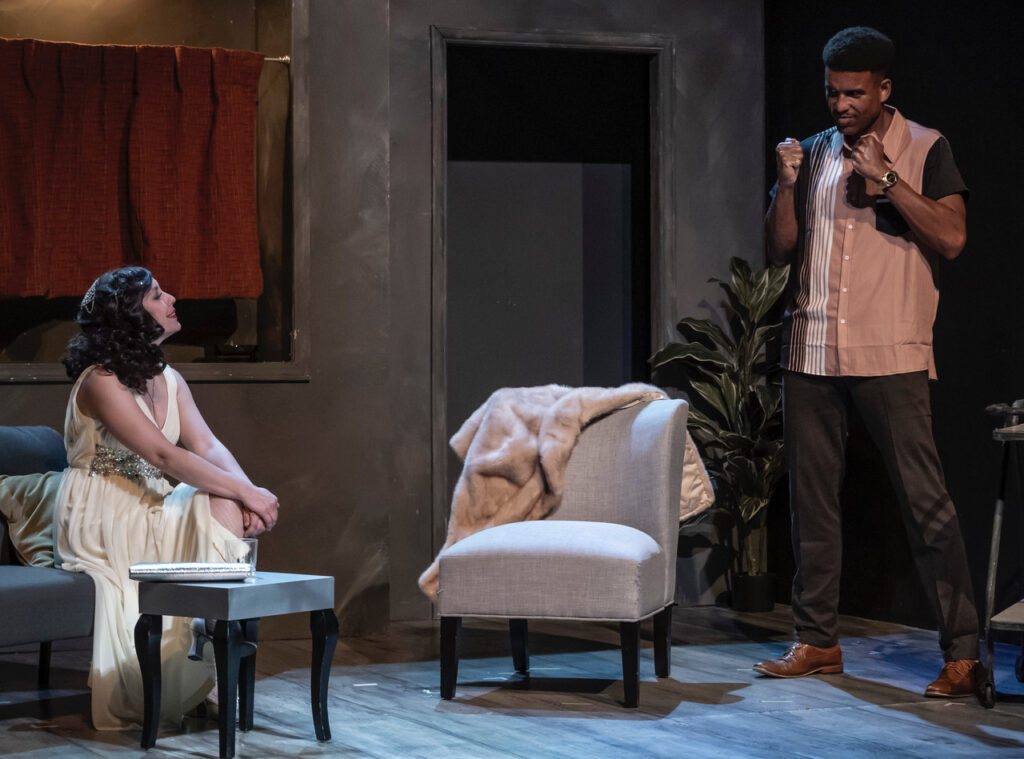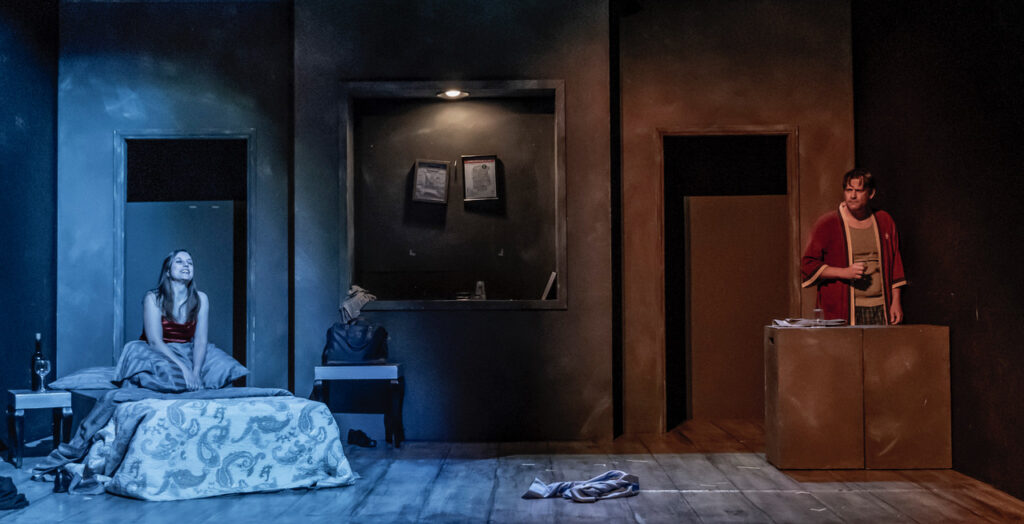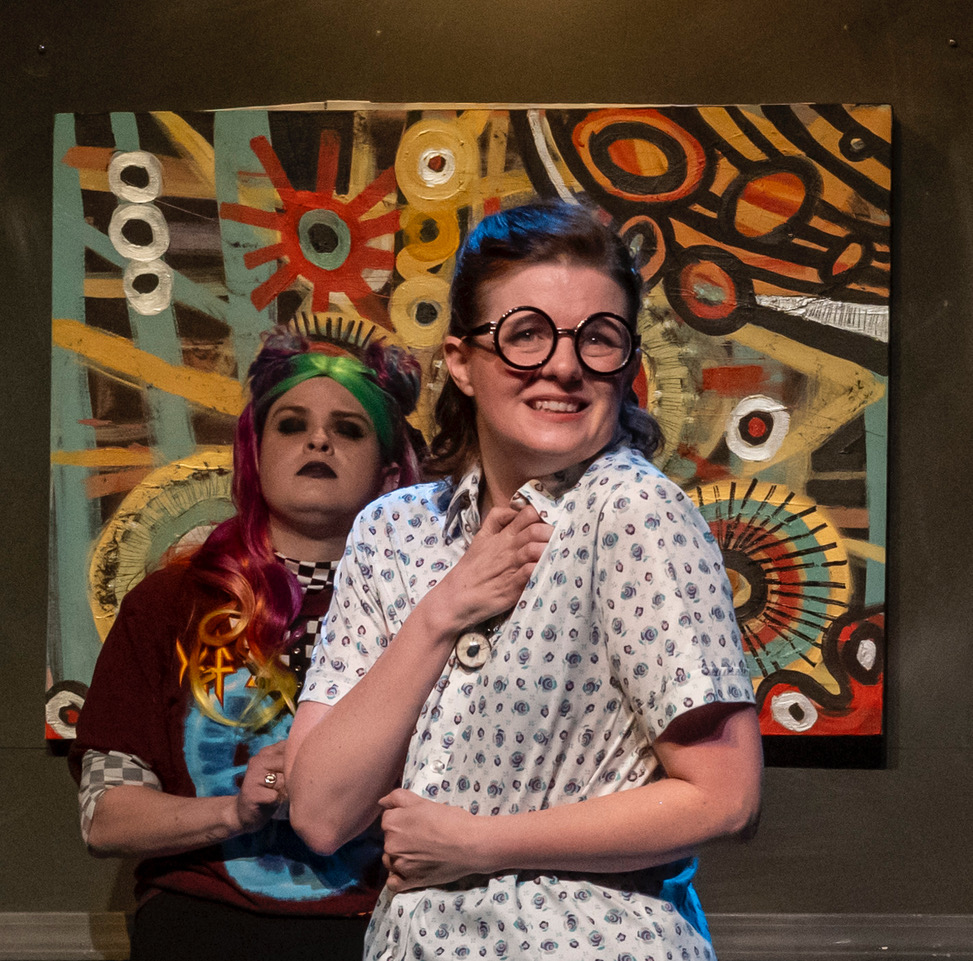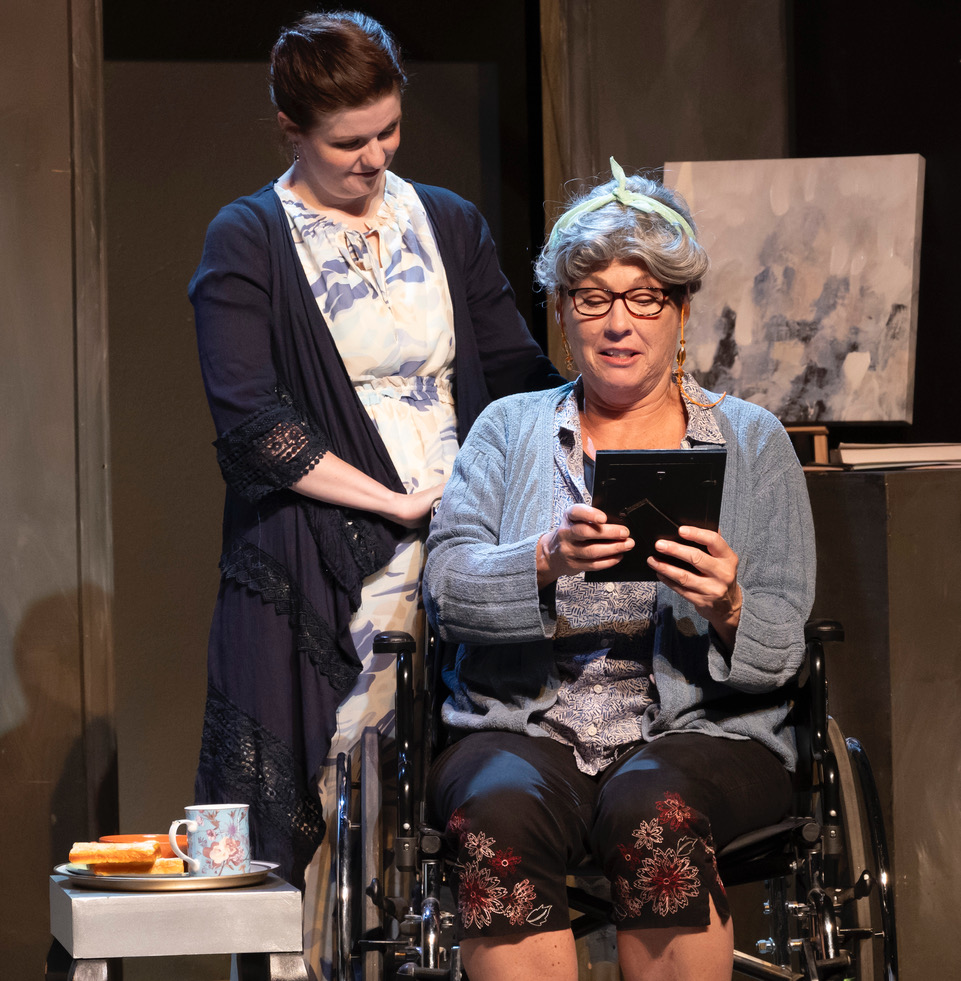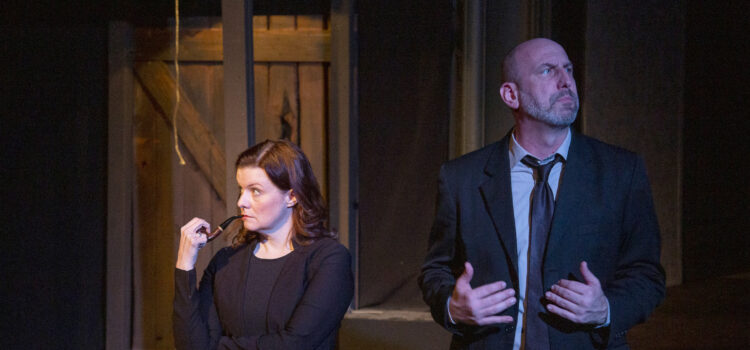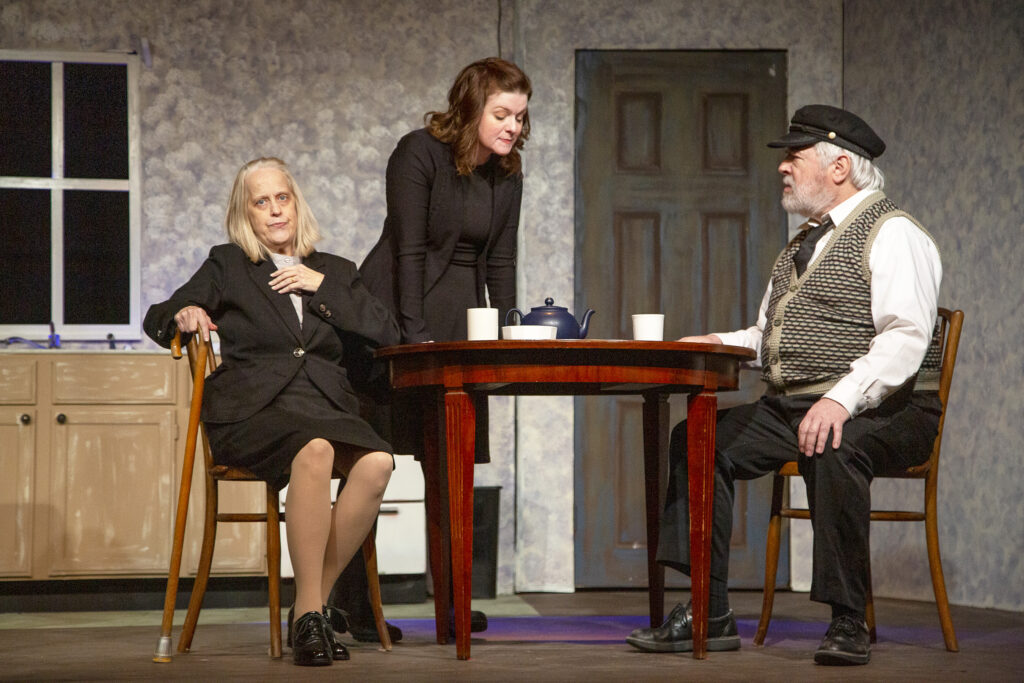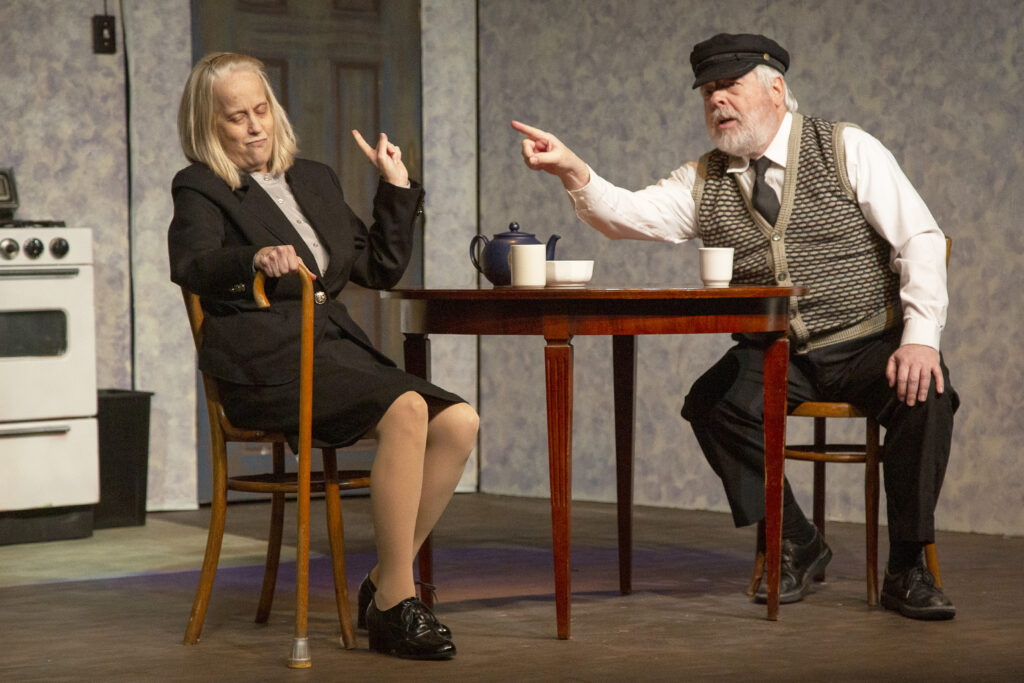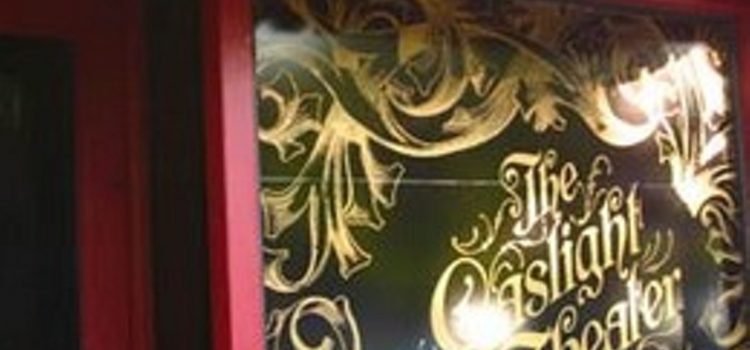By Lynn Venhaus
The playwright Harold Pinter made a long and distinguished career out of confounding people with odd plays featuring weird situations, convoluted dialogue, and peculiar characters. “Old Times,” written in 1971, is his freaky, flaky waltz down memory lane that never resolves anything but builds unnerving tension. It is one of his more divisive dramas.
When Roundabout Theatre Company was in rehearsals preparing for a revival in 1984, actor Anthony Hopkins asked Pinter to explain the play’s ending. He famously responded: “I don’t know. Just do it.”
OK, then. When the playwright intends to leave us hanging, it may be hard for a theatergoer to decipher, and there are plenty of theories about what really happened in this show. The point is caring enough to be satisfied with your highly personal observation.
This play is already a tall order for even the most accomplished artists, and unfortunately, is more frustrating than fulfilling in The Midnight Company’s latest presentation.
Director Sarah Lynne Holt has framed Pinter’s familiar enclosed space setting in a stripped-down theater-in-the-round style at The Chapel, where the audience is squished into a wedge of chairs where your view of the three actors may be limited.
That’s a detriment to absorbing the highly stylized delivery of the three actors where every non sequitur, riddle, pause and selected memory is supposedly fraught with meaning. And the sound isn’t consistent either, which makes it even harder to understand the disjointed patter.
The staging is clumsy, and while I realize it’s a low-budget production, the serving of tea is awkward, and the pouring of brandy into cordial glasses, not snifters, is puzzling.
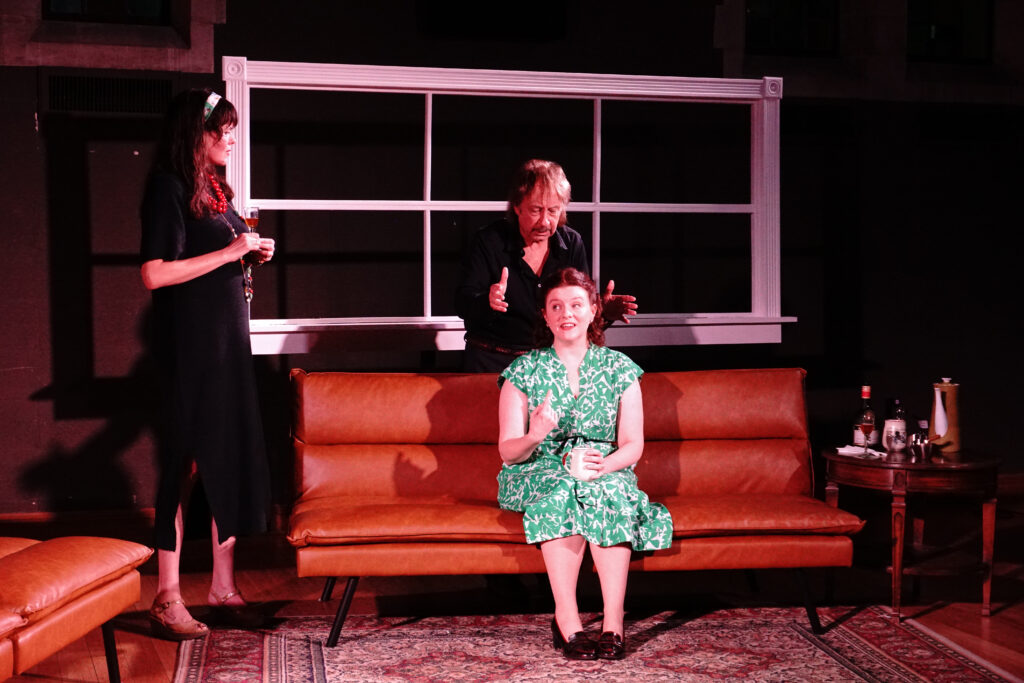
Individually engaging performers — Colleen Backer as Kate, Kelly Howe as Anna, and Joe Hanrahan as Deeley, aren’t meant to be a cohesive trio, and their distance only raises more questions, as intended.
On the surface, it appears that a husband, Deeley, and a wife, Kate, are visited by her old friend and former roommate, Anna, from their carefree single days. They live remotely by the sea while she lives in Sicily but once lived in London. Kate and Anna haven’t seen each other in 20 years.
Well, that’s the story that they seem to be sticking with, and from the start, you can tell something is off kilter. Reality is blurred and recollections are tested in a most bizarre reconnection.
Vague on purpose, Howe hints that Anna has a swinger past and can still seduce, trying to be coquettish with both Kate and her husband.
The married couple don’t find that odd, nor do they appear to be what they seem. So, what kind of a charade is exactly going on?
While Backer and Howe are two evocative actresses — and it’s important to see their facial expressions if you can position yourself to do so, even their suggestive glances and knowing looks can’t convince us of any sexual heat between each other and Deeley.
And Deeley comes across as kind of pervy with his unfiltered accounts of sexual desire, conquests and previous hook-ups with these and other women. Is Hanrahan purposely playing him as creepy? We do discover his lounge lizard past.
The characters are all supposed to be in their 40s, and clearly, Hanrahan is not, even though he doesn’t look his age.
But one aspect that supposedly distinguishes other productions is sexual tension, as in the 2015 Broadway revival starring Clive Owen, Eve Best and Kelly Reilly, where critics repeatedly mentioned it. The heat is not evident here.
While that is an elusive quality, that addition could have been crucial to the audience buying into this scenario.
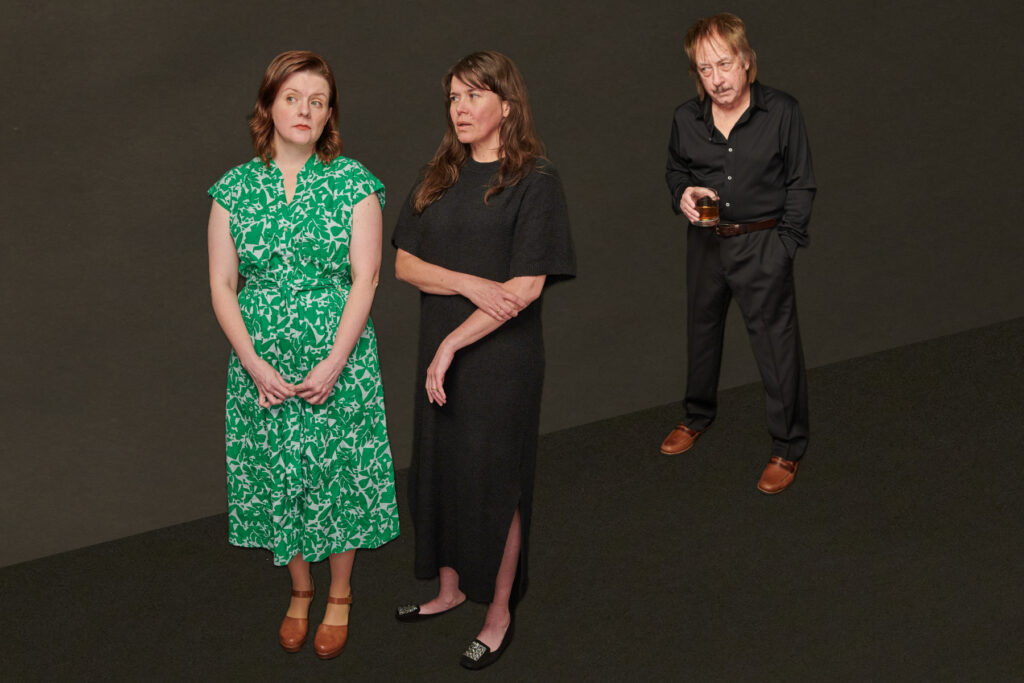
The women affect British accents while Hanrahan avoided it, so that’s another point that may bother you.
Pinter teases that there is something darker afoot. But the information is slim about their quirky characters the more the play goes on. Kate, who barely speaks, finally blurts out that she remembers her roommate being dead. Say what?
They may all be alive or dead, they all might be figments of someone’s imagination, and the way they reminisce about the past may be total fiction. Emotions are guarded and the characters don’t say what they mean. You wanted Pinteresque, and you got it.
If you are fascinated by his maddening style of doling out clues and pieces of information that may or may not wind up germane to the story, then you’ll invest the time to solve the puzzle.
If you are irritated by his overuse of pauses, or if you lack the patience to be convinced of anything not spelled out, then this material will let you down. It’s all in your perceptions.
Hailed as one of the most influential writers of the 20th century, Pinter won the Nobel Prize for Literature in 2005, and is famous for “The Birthday Party,” “The Homecoming,” “Betrayal” and “The Caretaker.” He died at age 78 in 2008.
He tended to concentrate on isolation, fear and troubled personal relationships, creating an elliptical dialogue. He also liked to confuse time and space. Frequent descriptions of his work – unpredictable, unspecific, and combative – are apt.
Another choice is that Holt does little to guide the audience in a certain way, preferring to keep everyone guessing and debating afterwards instead. But according to the press release, she didn’t want to make it easy for people to agree on what happened.
The Emperor’s New Clothes or brilliant 20th century mind at work? You say subtle, I say pretentious.
I don’t find this material a good fit for the strengths of the award-winning veteran performers. They can, and have done, so much better. I usually enjoy watching them on stage, but Pinter’s obtuseness can only carry a show so far, especially when you feel disengaged.
The clock is ticking, and the play lasts 1 hour and 35 minutes with one intermission. Fatigue sets in when you realize they aren’t really saying much – and won’t.
I am pretty sure no two people who see “Old Times” will agree on interpretations, and then again, there’s no one right answer.
The trick is caring. The murkiness is troubling, and if you are OK without a satisfactory resolution, that’s your prerogative.
The Midnight Company presents “Old Times” July 11-27 at The Chapel, 6238 Alexander, with performances Thursdays through Saturdays at 8 p.m., and Sunday matinees July 14 and 21 at 2 p.m. Tickets can be reserved at MetroTix.com. For more information, visit www.midnightcompany.com

Lynn (Zipfel) Venhaus has had a continuous byline in St. Louis metro region publications since 1978. She writes features and news for Belleville News-Democrat and contributes to St. Louis magazine and other publications.
She is a Rotten Tomatoes-approved film critic, currently reviews films for Webster-Kirkwood Times and KTRS Radio, covers entertainment for PopLifeSTL.com and co-hosts podcast PopLifeSTL.com…Presents.
She is a member of Critics Choice Association, where she serves on the women’s and marketing committees; Alliance of Women Film Journalists; and on the board of the St. Louis Film Critics Association. She is a founding and board member of the St. Louis Theater Circle.
She is retired from teaching journalism/media as an adjunct college instructor.

